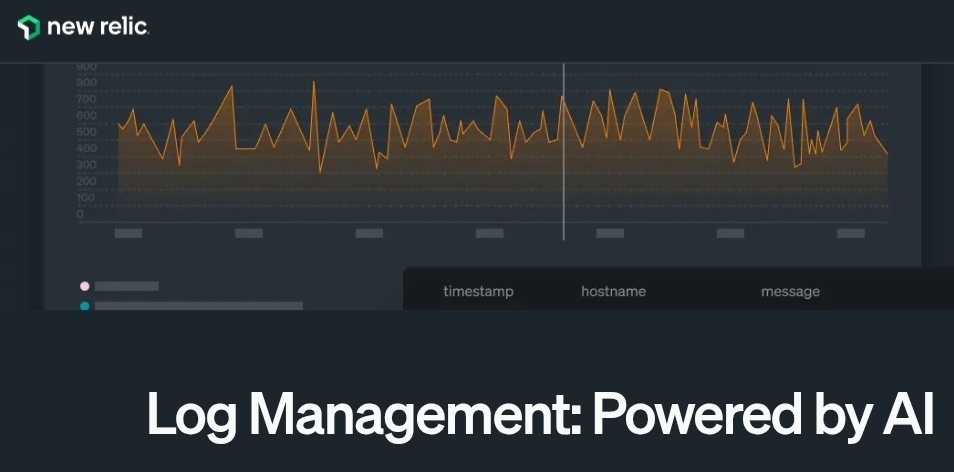New Relic’s new Logs Intelligence brings AI-powered automation to the challenge of log analysis and incident response. For customer experience (CX) and employee experience (EX) professionals, this innovation addresses a critical pain point: the overwhelming volume and complexity of logs generated in modern distributed systems. By shifting the burden of analysis from engineers to AI, New Relic accelerates mean time to resolution (MTTR), enhances system reliability, and ultimately supports smoother digital experiences.
Real-World CX and EX Challenges with Log Data
In today’s digital enterprises, software systems produce an enormous quantity of logs daily—over 50GB per 100-node cluster is not uncommon. Each transaction may generate 10,000+ log lines spread across services. This log avalanche is a double-edged sword: while logs hold crucial insights to troubleshoot and optimize system performance, the raw volume introduces analysis complexity and delays.
For customer experience teams, slow or ineffective incident response results in downtime, degraded digital service quality, and lost revenue. Employee experience suffers too when engineering teams face burnout and frustration dealing with manual, time-consuming log investigations under pressure. The “needle in a haystack” problem frustrates engineers, creating bottlenecks in incident workflows and inhibiting proactive CX and EX improvements.
How AI Enhances Log Intelligence and Incident Response
New Relic’s Logs Intelligence leverages artificial intelligence to transform log data into actionable insights. Key capabilities include AI Log Alerts Summarization and Scheduled Search automation.
- AI Log Alerts Summarization: When an alert is triggered by log anomalies, the AI analyzes relevant logs instantly. It identifies dominant error patterns, and generates a clear, structured hypothesis explaining the root cause. This immediate “why” tells engineers what to fix, drastically reducing the manual effort to correlate data and accelerating MTTR.
- Scheduled Search: This automates repetitive log queries and delivers actionable reports via email or Slack. Unlike static dashboards, these reports include clickable insights. Thus, enabling operators to take immediate remedial actions, promoting faster decision-making and minimizing costly downtime.
This automated AI-driven approach converts what was once reactive firefighting into proactive and predictive troubleshooting. Engineers spend less time combing through raw data and more time applying fixes that stabilize systems and enhance user experiences.
Expert Perspectives and Industry Context
Siva Padisetty, CTO of New Relic, highlights this transformative impact: “Traditional log management becomes infinitely challenging at this scale. With Logs Intelligence, we turn walls of unstructured data into actionable insights—accelerating incident response, reducing MTTR, and freeing teams to focus on higher-value work.”
IDC’s Stephen Elliot emphasizes the importance of AI in complex environments. He : “AI-driven solutions that automatically surface root causes behind alerts and transform raw logs into actionable insights are critical. They reduce downtime and enable teams to focus on innovation, not just firefighting.”
Recent research underscores that AI-enabled incident management platforms commonly yield MTTR reductions of 50-70%. This, fundamentally changes operations from reactive to strategic problem-solving. One defense contractor, Leidos, saw MTTR drop from 47 hours to 15 minutes after adopting AI incident automation.
Improving System Stability and Business Outcomes
This happens by accelerating root cause understanding and response times. New Relic’s Logs Intelligence directly enhances system availability—a crucial driver for both CX and EX. More reliable digital applications translate to:
- Improved customer satisfaction due to fewer interruptions and faster resolution of issues.
- Increased employee productivity and morale by reducing stress and manual workload on engineering teams.
- Lower operational costs as fewer resources are tied up in crisis management.
- Greater agility to innovate since engineers can now focus on proactive improvements rather than just firefighting.
Granular control features also ensure organizations maintain compliance and security. That too while empowering engineers with full observability, thus, striking a balance between governance and operational effectiveness.

Actionable Insights for CX and EX Professionals
To fully leverage AI-strengthened log intelligence for superior customer and employee experience, CX and EX leaders can consider these strategies:
- Invest in Intelligent Observability Platforms: Adopt AI-enabled tools like New Relic Logs Intelligence to automate log analysis, reduce MTTR, and deliver actionable insights in real time.
- Integrate AI Insights into Incident Workflows: Ensure engineering and operations teams receive AI summaries and automated reports directly within their communication channels to speed up decision-making.
- Balance Access Control and Transparency: Implement fine-grain access controls to protect sensitive data without compromising the troubleshooting capabilities of engineering teams.
- Measure Impact on CX and EX: Track key metrics like system uptime, MTTR, employee satisfaction scores, and customer feedback to assess how AI-driven observability improves overall experience quality.
- Promote a Proactive Culture: Use AI’s predictive capabilities to anticipate and mitigate issues before they affect customers or employees, shifting from reactive problem-solving to preventive action.
Conclusion
New Relic’s Logs Intelligence showcases the next wave in observability: harnessing AI to cut through the noise of overwhelming log data and turbocharge incident response. This empowers CX and EX professionals to maintain more stable, reliable digital environments, delight customers, and support engaged, productive teams. By automating time-intensive tasks, organizations can reduce MTTR, lower costs, and drive continuous innovation in their customer and employee experiences.
In a landscape where digital reliability defines business success, investing in AI-driven log intelligence is no longer optional—it’s a critical competitive advantage.

